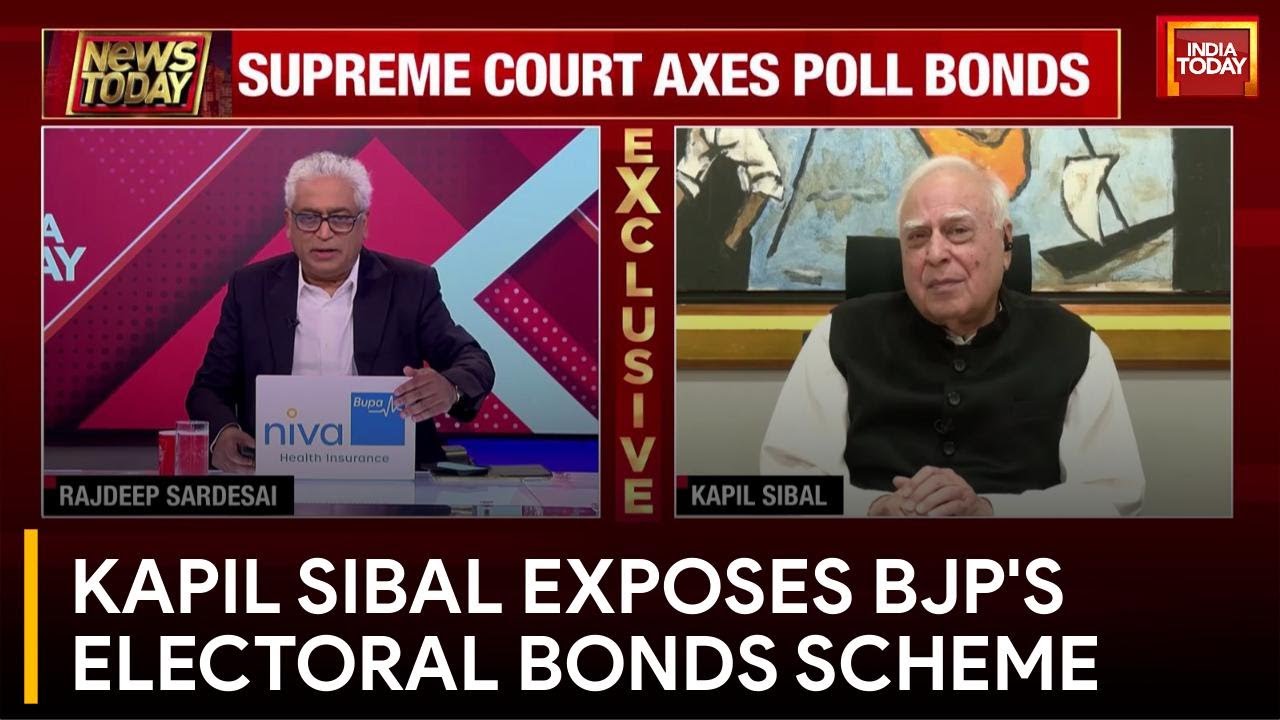Why did the Supreme Court rule against the Electoral Bonds? : Explained in 15 mins
Summary
TLDROn February 15, 2024, the Supreme Court of India declared the anonymous electoral Bond scheme unconstitutional, sparking controversy around political funding. The court criticized the State Bank of India for not disclosing full data on electoral bonds, which were introduced to curb black money transactions but are now seen as a scam and a threat to democracy. The bonds allow for anonymous donations, leading to concerns about quid pro quo and foreign influence in elections. The court's ruling was based on the violation of citizens' right to information, the potential for corporate extortion, and the undermining of free and fair elections.
Please replace the link and try again.
Q & A
What was the Supreme Court's ruling on the Electoral Bond scheme in India on February 15, 2024?
-The Supreme Court of India declared the anonymous Electoral Bond scheme unconstitutional, sparking a major controversy about political funding in the country.
What was the criticism against the State Bank of India (SBI) in relation to the Electoral Bonds?
-The Supreme Court criticized SBI for not disclosing the full data regarding the Electoral Bonds, which included details of the donors and the parties that redeemed the bonds.
What are the primary concerns regarding the Electoral Bond scheme in India?
-The primary concerns are that the scheme is considered a major scam in democratic India, potentially used as a legal instrument for extortion, and contributes to the circulation of black money, affecting the transparency of political funding.
How were Electoral Bonds introduced in India?
-Electoral Bonds were introduced in the Union Budget of 2017-18 by then Finance Minister Arun Jaitley to curb black money transactions and provide a legitimate digital transaction for political funding.
What are the key attributes of Electoral Bonds?
-Electoral Bonds can be purchased by any person or company, come in multiples of Rs 1,000, Rs 10,000, 1 lakh, and 1 crore, have no limit on purchase, can only be encashed by parties securing at least 1% votes in the previous election, and must be bought at authorized SBI branches with check or digital payment.
What was the reported total value of Electoral Bonds sold between 2018 and 2024?
-A total of 28,30 electoral bonds worth Rs 16,51,8 crores were sold between 2018 and 2024.
Which political party was the top beneficiary of the Electoral Bonds according to the Association of Democratic Reforms?
-The Bharatiya Janata Party (BJP) emerged as the top beneficiary, having encashed bonds worth Rs 6,60,005 crores between April 2019 and January 2024.
Why did the Supreme Court rule the Electoral Bond scheme unconstitutional?
-The Supreme Court ruled against the scheme because it violated the right to information of Indian citizens, allowed for potential quid pro quo arrangements, and facilitated unlimited corporate donations that could hinder free and fair elections.
What is the concern regarding the influence of foreign companies on Indian elections through Electoral Bonds?
-The concern is that Electoral Bonds make it easier for foreign companies to spend money in Indian elections and potentially influence the outcomes, which is considered a threat to India's democracy.
How does the Electoral Bond scheme affect smaller political parties and businesses?
-Critics argue that the scheme favors bigger parties and corporations over smaller ones, potentially dominating Indian politics and undermining the influence of smaller players in the political landscape.
What is the role of the Enforcement Directorate (ED) in the context of Electoral Bonds and corporate donations?
-The Enforcement Directorate (ED) has been involved in probing money laundering and other financial irregularities among companies that have purchased Electoral Bonds, raising questions about potential quid pro quo arrangements between these companies and political parties.
Outlines

This section is available to paid users only. Please upgrade to access this part.
Upgrade NowMindmap

This section is available to paid users only. Please upgrade to access this part.
Upgrade NowKeywords

This section is available to paid users only. Please upgrade to access this part.
Upgrade NowHighlights

This section is available to paid users only. Please upgrade to access this part.
Upgrade NowTranscripts

This section is available to paid users only. Please upgrade to access this part.
Upgrade NowBrowse More Related Video

Electoral Bonds Scam Exposed

From Investigation to Petition: How SC Ruling on Caste Discrimination in Prisons Came to Be

SC - Articles of Impeachment vs. VP Sara Duterte are unconstitutional | GMA Integrated News

Reshaping the Supreme Court

Electoral Bonds | The Biggest Scam in History of India? | Explained by Dhruv Rathee

Kapil Sibal Reveals How Electoral Bonds Were A Scheme To Fund the BJP Big Time
5.0 / 5 (0 votes)